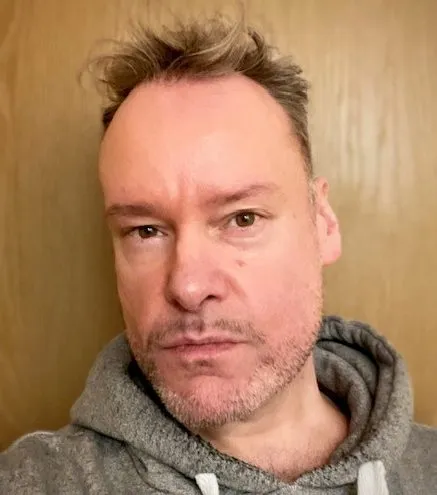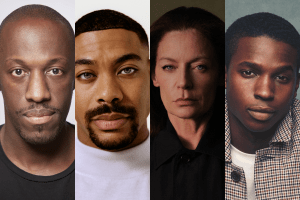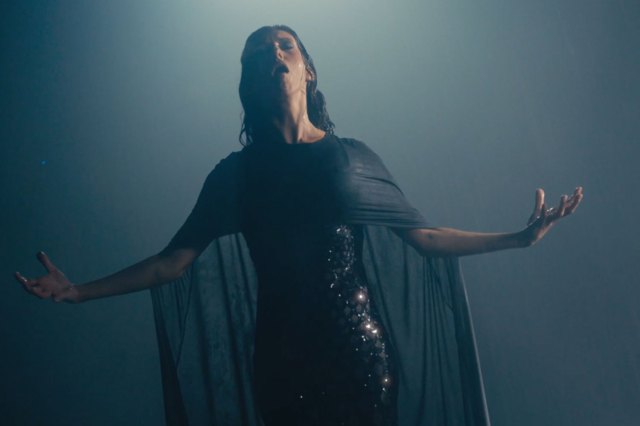Reviews
Paper Cut at the Park Theatre – review
Andrew Rosendorf’s play deals with major themes around military service, identity and more

“It’s just a paper cut” is how former US soldier Kyle (Callum Mardy) dismisses his horrific injuries (both of his legs and most of his genitalia were torn off by an IED bomb) following a life-changing tour of duty in Afghanistan. This unwillingness to make a drama out of a crisis is equally characteristic of Andrew Rosendorf’s 90-minute play as it is of its central character.
It’s not that Rosendorf trivialises the subjects of what happens to military personnel who can no longer serve, and the risks of being gay and in the army, but neither does he make them as theatrically stimulating as they could be. His characters communicate in stares, blunt, expletive strewn half sentences, and extended silences. Scenes meander and then stop suddenly. While it often feels realistic, it only intermittently ignites as drama. When it works, it’s pretty powerful, but there are sections where the tension and focus in Scott Hurran’s bare bones production could be amped up considerably.
Kyle is a fascinating central character, his psychological state almost as damaged as his body by everything that he has experienced. He’s longing to connect with another human being but also shut off from humanity, both his own and other people’s, and not fully at one with his own sexuality. Compellingly, Rosendorf doesn’t try to ennoble him, giving him sudden moments of terrible, unfettered rage (understandable maybe but uncomfortable to witness) and the really dishonourable back story of outing his gay twin brother Jack (Joe Bollard, excellent) to their brutal father in order to deflect attention from his own true nature. Mardy convincingly conveys the conflicts within Kyle, and makes vivid and distressing his moments of panic and fury. He remains too unknowable to really connect with however, which means that the moment near the end where he breaks open and admits how lost he is, doesn’t carry the emotional weight that it should.
Heartstopper’s Tobie Donovan is slightly wasted as the former school contemporary Kyle connects with online, but he is sweet and funny. Prince Kundai is brilliant as Chuck, the soldier who knew, and loves, Kyle both before and after his life-altering physical damage, and who may yet be his only lifeline. Kundai charts Chuck’s lightning fast changes in attitude and levels of vulnerability with real skill and not a small amount of charm.
Hurran’s staging has all the actors onstage throughout, watching the scenes they’re not involved in, as though bearing witness, which is a nice touch but can prove a bit distracting depending on where in the auditorium you’re sitting. On press night, the energy and pace seemed to be a little inconsistent, although that may improve as the run continues. Sorcha Corcoran’s stark plywood set, punctuated with dangling tubes of light, is deliberately abstract, with only Lucia Sánchez Roldán’s lighting providing clues to the shifting locations and time frames (Rosendorf’s text splices together scenes from Kyle’s earlier life with the present day). It’s effective but sometimes confusing, especially since the acoustics in the auditorium aren’t the best for this production, occasionally rendering some of the dialogue difficult to make out.
Ultimately, Paper Cut doesn’t really tell us anything we don’t already know with regards to homosexuality in the military, and would probably benefit from a deeper exploration of the tension between the twin brothers, which is the one area that feels genuinely fresh and unique. As it is, it’s a terse, but insufficiently intense, evening that frequently feels on the brink of achieving real power but never quite gets there. Worth catching for the acting though.
















